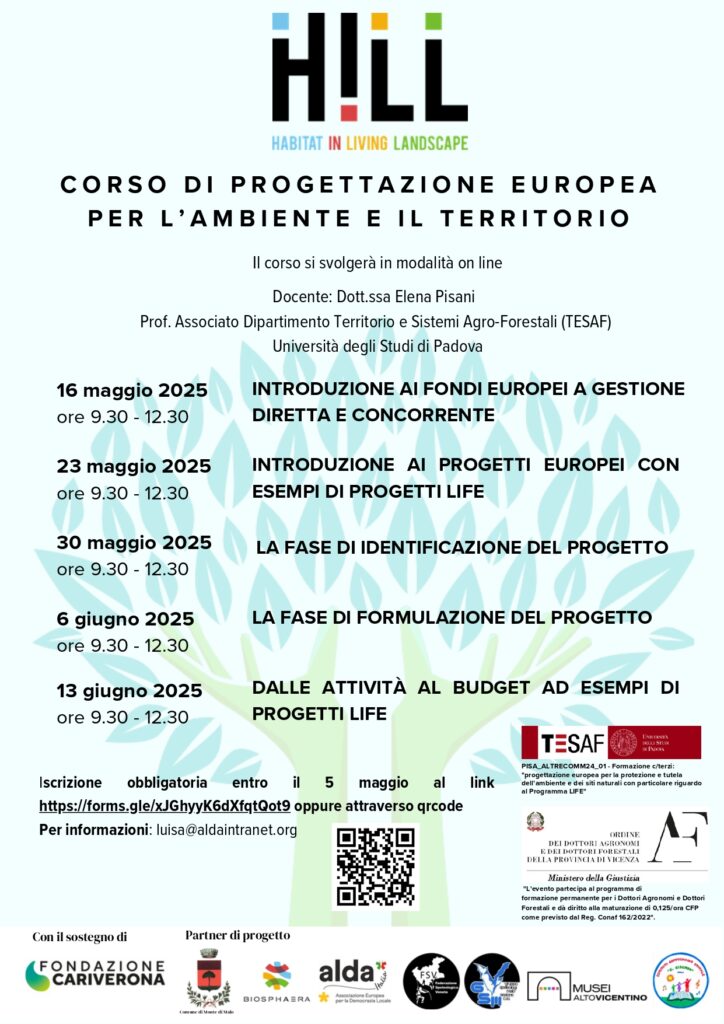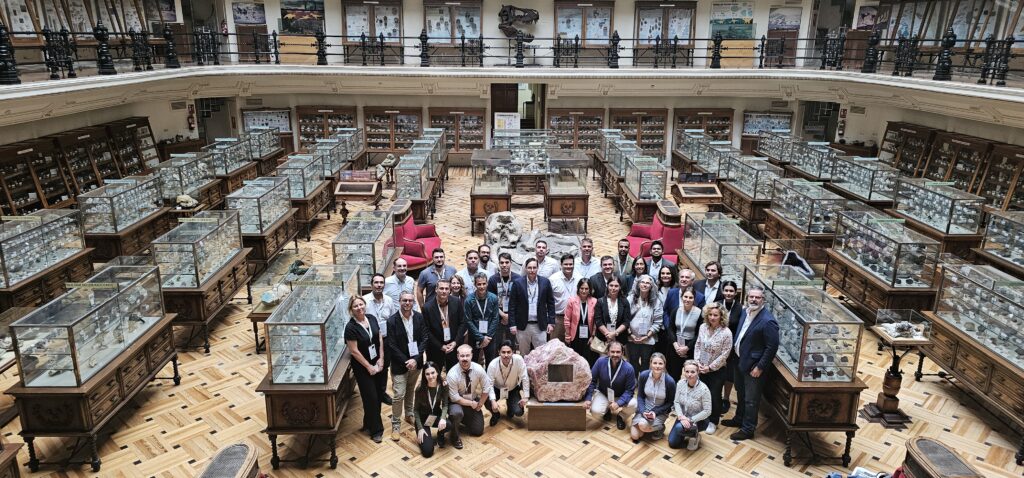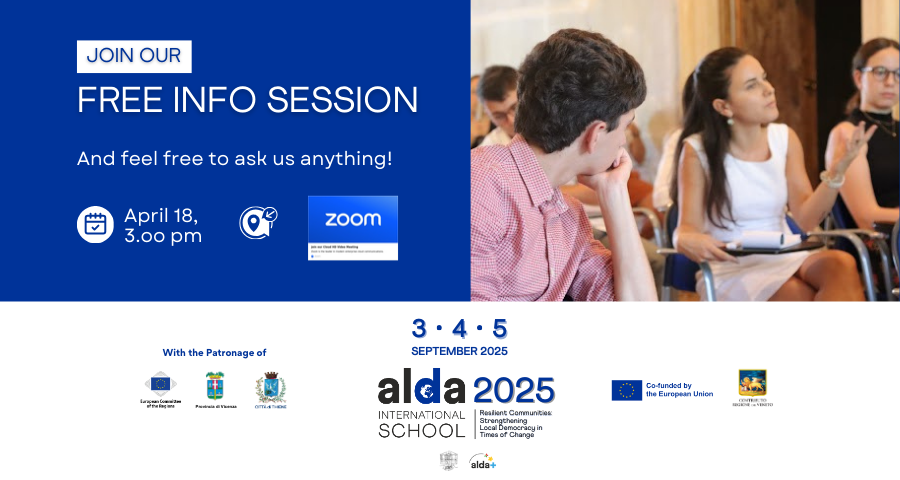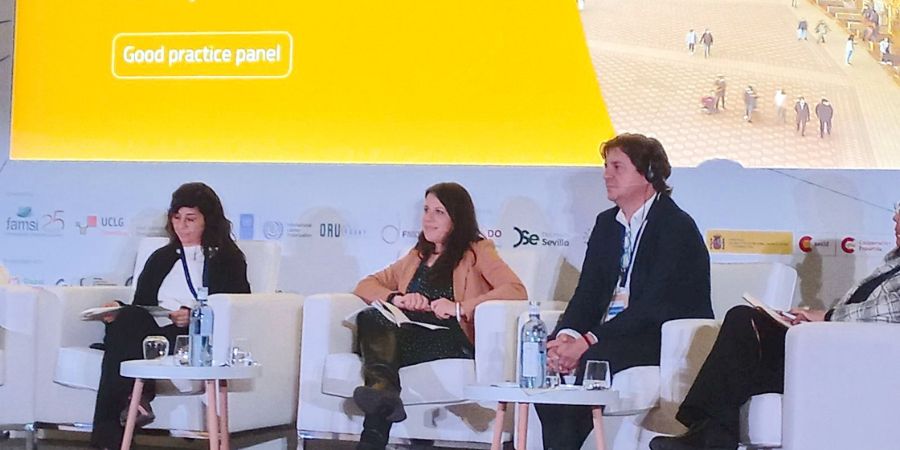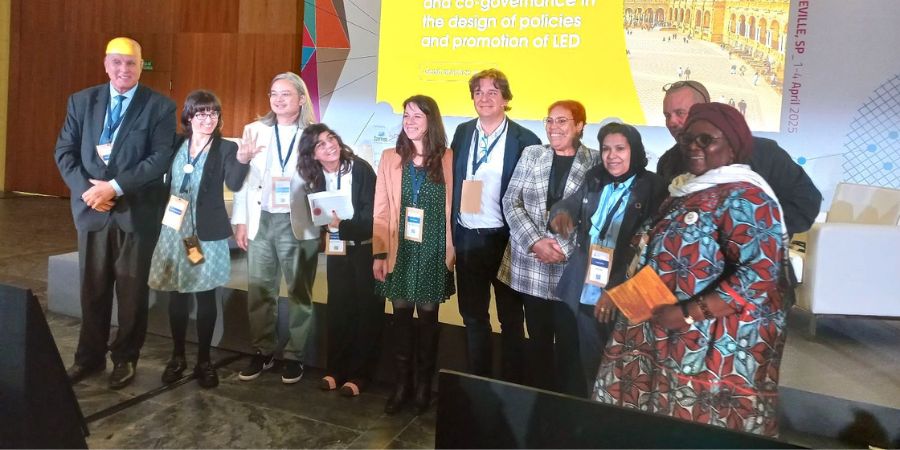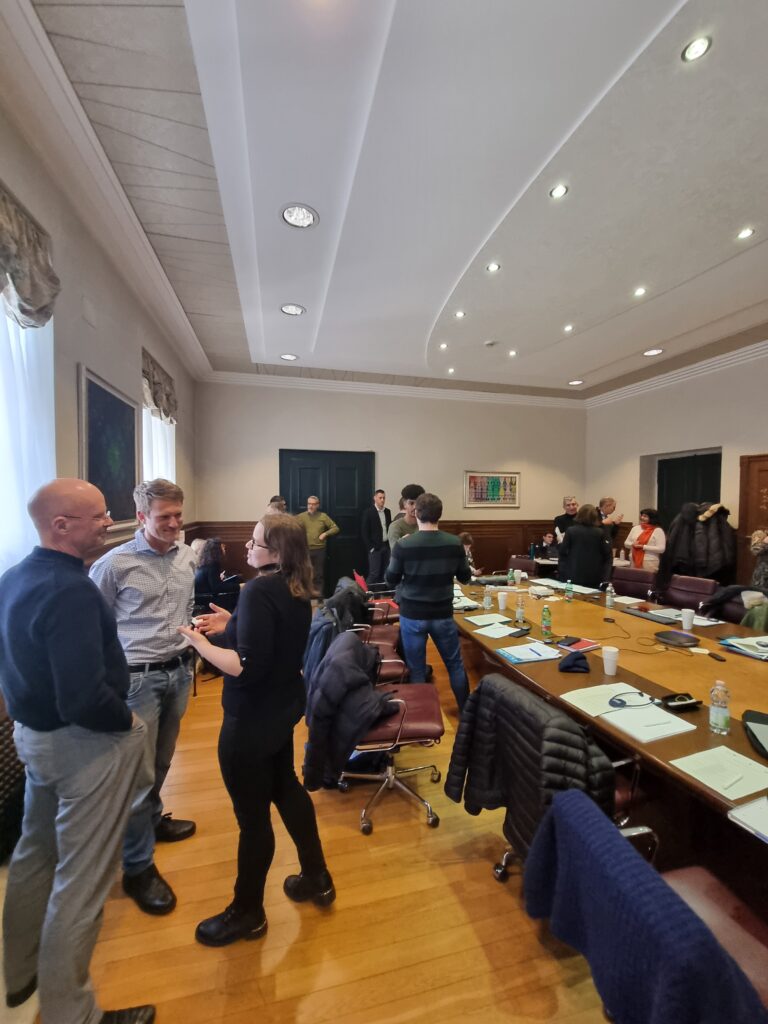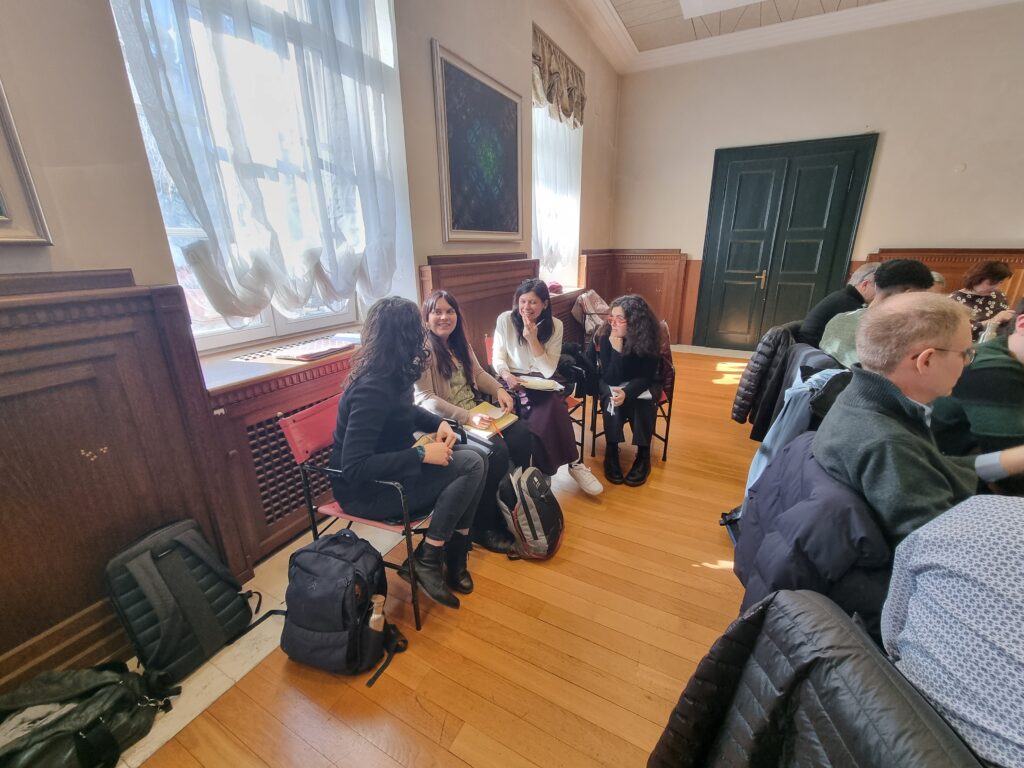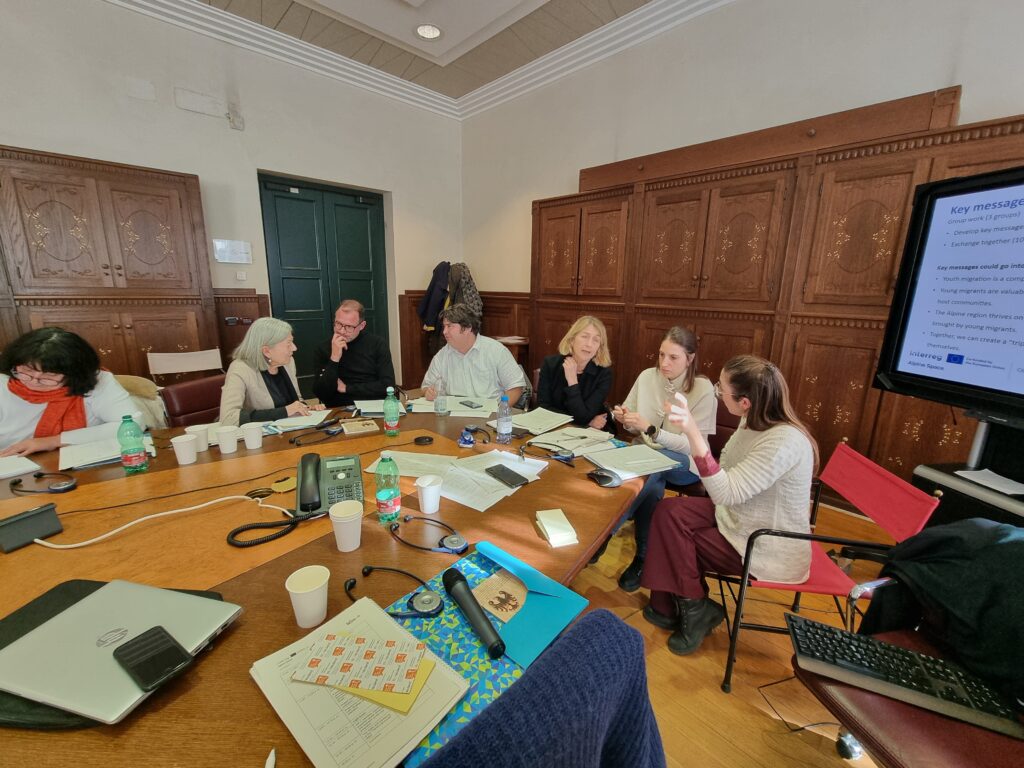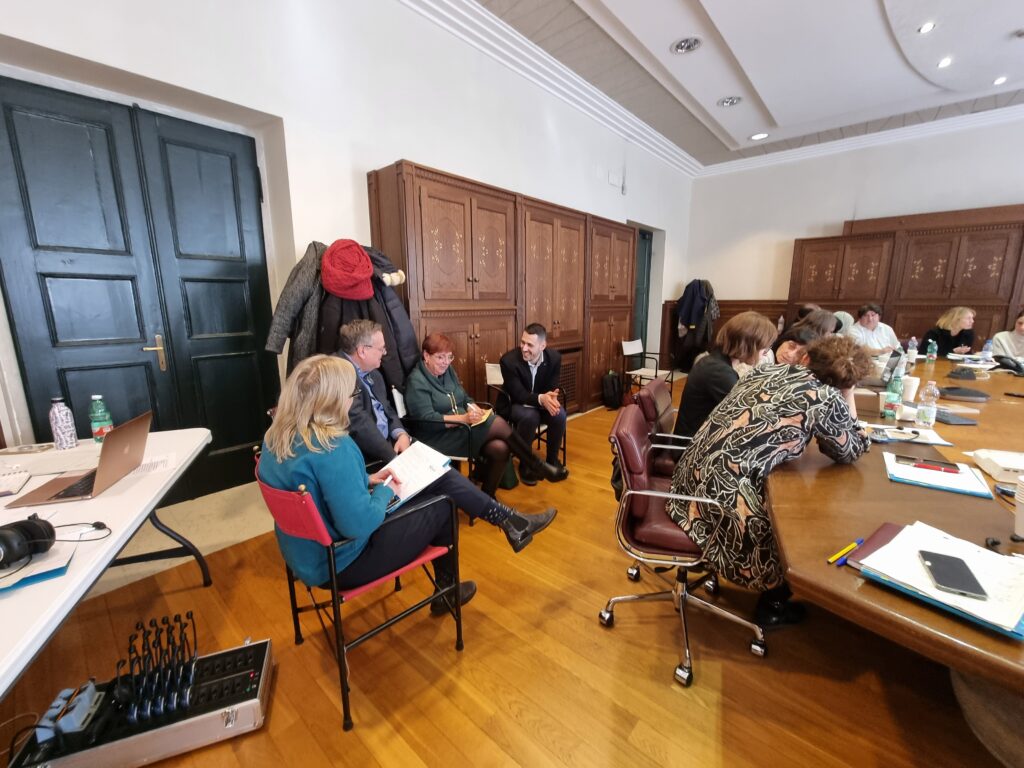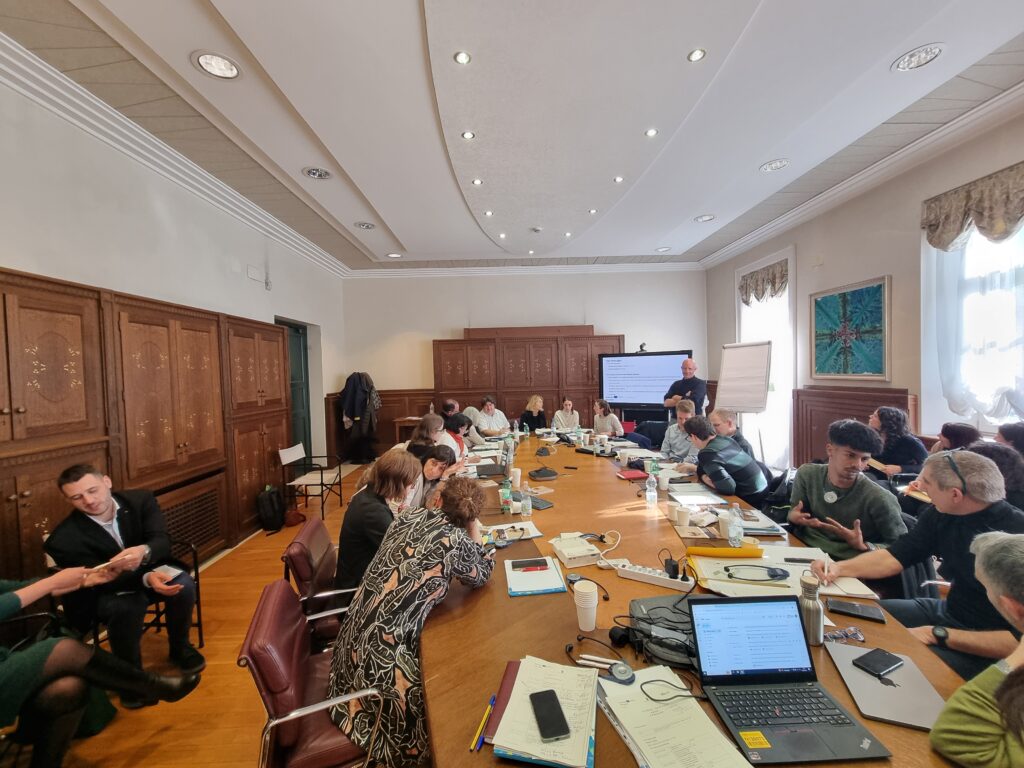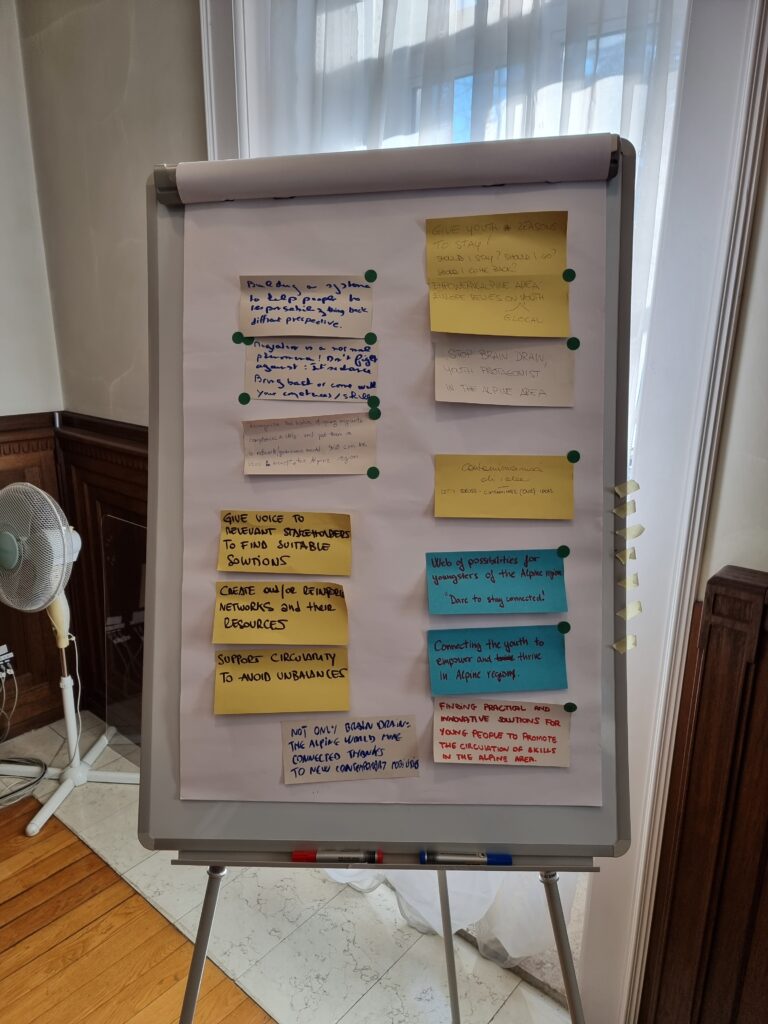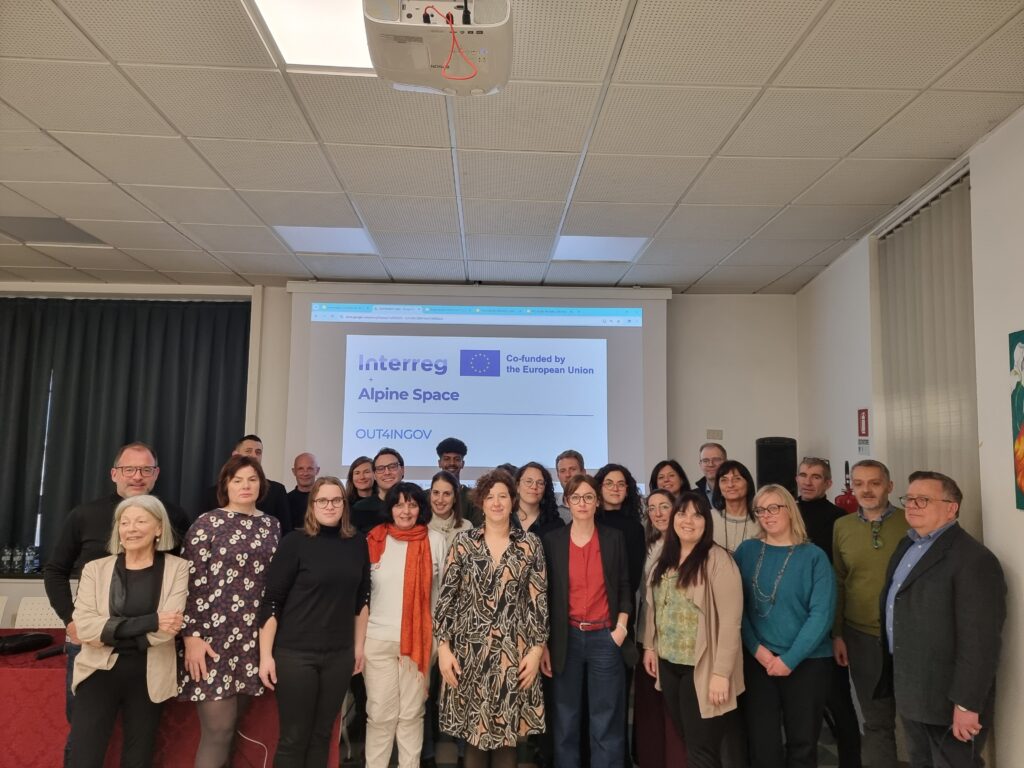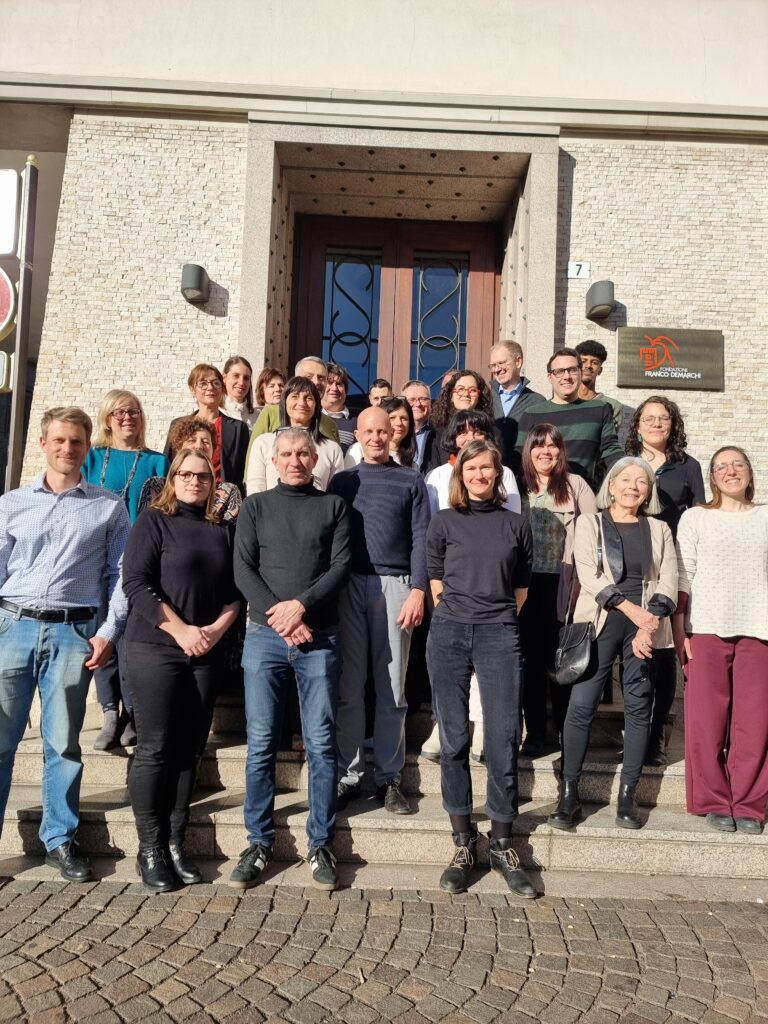Dakar, Senegal — April 15 to 17, 2025
ALDA, in partnership with the International Observatory on Participatory Democracy in Africa (OIDP Africa), hosted a regional networking and reflection workshop in Dakar (Senegal) focused on youth democratic participation. The initiative is part of the WYDE Civic Engagement project, funded by the European Commission, which aims to promote civic engagement across Sub-Saharan Africa.
A Hub for Civic Engagement
Bringing together 19 representatives from organisations across over 12 African countries, the event took place at Hôtel L’Adresse in Dakar. It brought together key stakeholders in local democracy—mayors, local development agency representatives, and NGO leaders—for panels, workshops, and networking sessions.
Key Moments from the Programme
The opening ceremony featured speeches from Antonella Valmorbida (ALDA Secretary General), Octavi de la Varga Mas, Diamé Signaté (Director of the Local Development Agency in Senegal), and Bachir Kanouté (Secretary General of OIDP Africa). It was followed by a formal signing of cooperation agreements, strengthening partnerships between ALDA and local Senegalese authorities.
Highlights included:
- A multi-stakeholder meeting between ALDA, Senegalese mayors, local development agencies, and OIDP Africa to explore practical collaboration.
- A joint workshop on democratic resilience in fragile contexts, including a contest organised by OIDP.
- The “ideas marketplace”, a dynamic space for exchange among sub-grantees of the project.
- A roundtable with experienced NGOs, followed by a graduation ceremony attended by the EU Delegation and selected external guests.
A Landmark Event with the Kofi Annan Foundation
On April 17, a special session was held in collaboration with the Kofi Annan Foundation, reinforcing the importance of intergenerational dialogue and historical memory in building democracy.
This high-level event featured several distinguished guests:
- Mr. Elhadj As Sy, Chair of the Kofi Annan Foundation Board and former Secretary General of the International Federation of Red Cross and Red Crescent Societies (IFRC),
- Mr. Alioune Tine, Founder of the Afrikajom Center and human rights advocate,
- Professor Amsatou Sow Sidibé, President of the National Human Rights Commission of Senegal,
- Professor Penda Mbow, historian and political figure,
- Professor Boubacar Diop (Buuba), historian and lecturer in civilization at the University of Dakar.
This special session facilitated a rich exchange on today’s democratic challenges in Africa, the transmission of civic values, and the importance of ethical leadership among the youth.
A Forward-Looking Initiative
This event not only highlighted local initiatives in support of democratic participation but also laid the groundwork for stronger cooperation between civil society and public institutions across the region. It marks a key milestone in ALDA’s ongoing commitment to empowering young leaders and strengthening democratic institutions in Sub-Saharan Africa.
